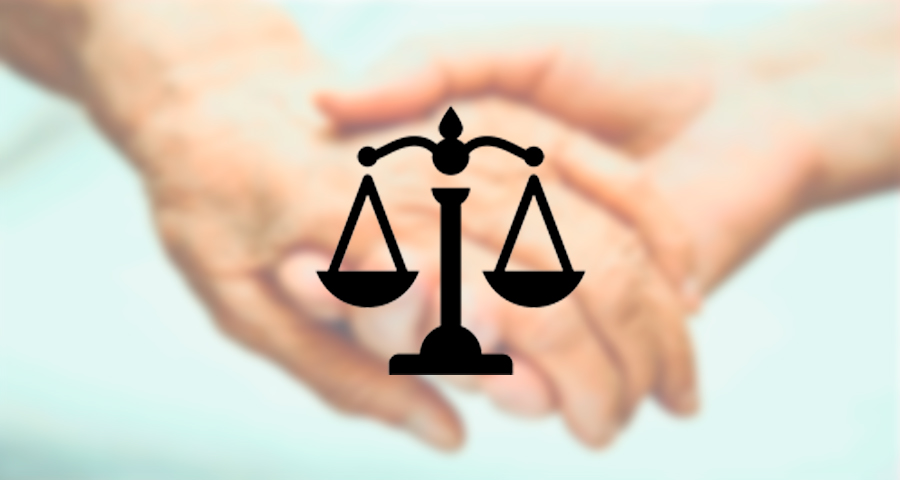
When one considers the protection of senior citizen, the concept (considered a natural occurrence) and the excessive absence of the same practice appear very improbable in a nation like ours, which has long boasted of an aged friend and a reverent society.In recent years, a paradigm change has occurred, from treating elderly people with the greatest respect and compassion to an increment in the amount of terrible and unforgivable instances of senior citizens being left unattended and severely mistreated. To get assistance and aid for the elderly of our nation best advocates like Adv. Bindu Dubey, NRI lawyer in Mumbai can be consulted to discuss the legal provisions for the protection of the rights that seem to be violated for the senior citizens.
It was only natural for a democratic government, such as ours, to act on the basis of its very existence, namely to recognise the need of the hour and attempt to rectify it through legislation; in 2007, the Maintenance and Welfare of Parents and Senior Citizens Act was enacted to provide senior citizens (those over the age of 60) with a right to maintenance. The legislation defines maintenance as “providing food, clothes, housing, medical care, recreational activities, and also medical attendance.” This maintenance may also assume the shape of a monetary payment of up to Rs. 10,000 each month. The act’s primary objective is to guarantee elderly people’ welfare, and as such they are legally allowed to claim it from either their offspring or kin (people who will get their property after they die). The consequences for quasi with the tribunal’s orders include fines and a month’s jail.
Section 4 of the legislation states that a request for support may be submitted to the tribunal by:
1. Alternatively, the parent/elderly person
2. Any voluntary organisation registered under the Societies Registration Act 1860 or another legislation may appeal on their behalf if they are unable to do so themselves.
3. Initiated by the tribunal itself.
People or entities that may be sued in this case include: One or more people may be named as defendants in the lawsuit including a child/relative and any other parties with a stake in the outcome. For the purposes of the legislation, a ‘Relative’ is someone who is not a juvenile but is the legal successor of an older person who has no children. Children/relatives have a responsibility to take care of their elderly citizen/parent so that they may live a healthy life. The basic need for maintenance is that the children/relatives own/have inherited the senior citizen/property. parent’s If the property is inherited by many family members, everyone will be responsible for their share of the upkeep. If one of the family members dies, the others will still be responsible for the debt.
Following proper notice to the children/relatives and giving them a chance to be heard, the tribunal will conduct an inquiry to decide the amount of support to be paid. And during pendency of the proceedings, the tribunal may issue an executive order for interim maintenance. There would be no evidence collected in the absence of the children/relatives who are the subject of the complaint. if a child/relative deliberately avoids service or neglects to appear before the tribunal, the panel may continue to hear the matter without them, ex parte. Notice must be delivered via certain power as the National Government may give if the children/relatives reside outside of India. It’s possible that a conciliation officer will submit his or her submission before a petition for maintenance is heard. Any agreement reached by the parties will be codified in an order issued by the tribunal. Maintenance must be given under only either act and not both where a parent or seniors is entitled by Chapter IX of the Criminal procedure Code 1973 as well as under this act to maintenance.
The amount of funding is due and charged as soon as the order is placed or as soon as the application is submitted, whichever comes first. Furthermore, the tribunal may order that interest be paid at a rate of at least 5% and as much as 18% on top of the maintenance. There will be a maximum monthly maintenance payment of INR ten thousand. In the following situations, the allowances may be changed: misrepresentation, factual error, and a change in circumstances. The State Government will set up an Appellate Tribunal in each district publishing a notice in the Official Gazette. In the event of an appeal, the case must be taken to the Appellate Tribunal.
Once notice has been served on the children/relative, the request for interim maintenance has 90 days from the date of service to be disposed of It is possible to get a thirty-day extension in rare cases only. Within thirty days after the time of procurement by the tribunal, the child/relative who is obliged to pay maintenance must deposit the full sum.
If the child/relative does not pay the debt within three months, the court may issue an arrest warrant for the defaulter. Such incarceration may last for a month or until the debt is paid in full. Someone who neglects an elderly person may face fines, jail time, or perhaps both for their actions. It’s possible that the fine could rise to Rupees 5000, and the jail time will be increased to three months. Many elderly people have now received the care they need as a result of the law’s implementation. As a result, the legislation has served to strengthen the basic human rights of vulnerable populations.
The Maintenance and Welfare of Parents and Senior Citizens Act is an excellent first step in enforcing and legitimizing a moral obligation that was largely neglected during the golden years of consumerism and materialism. However, the fundamental issue is whether law is effective at imposing a subjective standard such as morality. Yes, I believe. As a consequence of the legislation, many instances of elder abuse have been brought to light, and so many more senior people should get the help they need once the public is informed about the legislation and its provisions.
Respecting and protecting the elderly, which was previously considered a moral obligation, has now been imposed as a legal obligation, a step that, while challenging to implement, has enormous potential in a nation like India, where even the older adults were left without means of sustenance beyond retirement.












